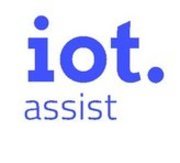Human-Computer Interaction
Latest Resarch News
Selected Projects

IoTAssist: Digital Assistance Services for Corporate Health Management
The basic goal of the project is to develop a platform that enables interoperability between devices and services in the IoT and wearables area. Personalized corporate health solutions will be designed on this basis.

vgiReports
Schwerpunkt des Vorhabens ist es, selbsterklärende Darstellungen für öffentlich verfügbare, geografische Daten zu erforschen. Hierzu sollen Verfahren entwickelt werden, die aus den Daten automatisiert interaktive Berichte erzeugen.

Functional Biometrics
Die Forscher der Arbeitsgruppe Human-Computer-Interaction nehmen in diesem Vorhaben eine neue Klasse biometrischer Authentifizierungsverfahren in den Fokus: die Funktionale Biometrie. Hierbei erzeugt das System, an dem sich eine Person anmelden will, ein Eingangssignal und überträgt es auf den Körper.

DIAMANT
Im Projekt DIAMANT wird erforscht, wie die aufkommende digitale Arbeitswelt innovativ organisiert und gestaltet werden kann – zum Vorteil von Unternehmen und Beschäftigten.

Digitale Regeln zum Arbeitsschutz auf Baustellen
Im Projekt DigiRAB werden Ansätze zur Verbesserung des Arbeitsschutzes auf Baustellen unter Verwendung von Digitalisierungen und Virtual Reality Technologien analog der „Industrie 4.0“ entwickelt

Pflege mit Durchblick
In „Pflege mit Durchblick“ soll auf Basis der bereits am Markt verfügbaren Augmented Reality (AR)-Datenbrillen (bspw. „Google Glass“) ein Konzept entwickelt und umgesetzt werden, mit dem Datenbrillen sowohl von professionell als auch informell pflegenden Menschen als Hilfsmittel eingesetzt werden können, um pflegebedürftigen Menschen ein Höchstmaß aus Betreuung und Lebensqualität zu ermöglichen.

Interdisciplinary Research Training Group "User-Centred Social Media"
Das Graduiertenkolleg UCSM bietet eine interdisziplinäre Forschungsumgebung mit den Hauptdisziplinen Informatik und Psychologie. Aus dieser interdisziplinären Perspektive adressiert es Forschungsherausforderungen im Zusammenhang mit Social Media, die als komplexe soziotechnische Systeme verstanden werden.

Heuristiken für die Industrie 4.0
Ziel des Projekts ist es, Heuristiken (Faustregeln) zu entwickeln, die die kontinuierliche Verbesserung der Arbeitsgestaltung und Kompetenzentwicklung von Industrie 4.0-Lösungen unterstützen.






